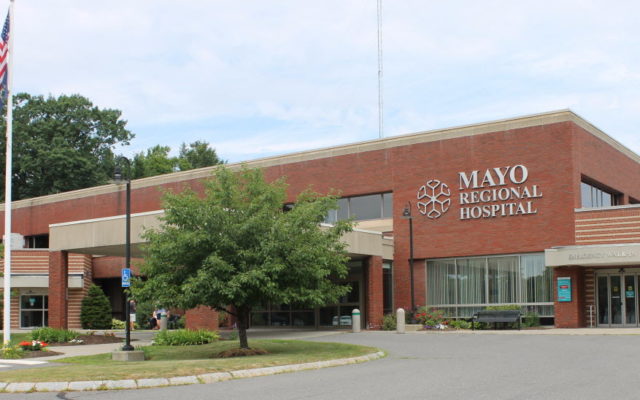
Fighting coronavirus won’t help struggling Maine hospitals pay the bills
Hospitals across Maine are steeling themselves for a possible spike in patients with the coronavirus by stocking up on equipment and freeing up beds and workers.
But while those efforts are critical from a public health perspective, they could make it harder in the long run for rural hospitals to sustain their current operations when many of them are already struggling to pay the bills.
Besides spending heavily on additional staffing and equipment to handle the outbreak, many hospitals recently have been delaying elective services that are reliable money-makers — such as colonoscopies, physical therapy, lab tests and joint replacements — in order to conserve resources and prevent the spread of the virus.
Hospitals themselves have acknowledged the long-term financial effects of the coronavirus will be serious, but they say it’s hard to forecast the eventual impact on their bottom lines.
For one thing, it’s uncertain how much reimbursement they will receive from federal stimulus efforts. They also don’t know exactly what to expect in the coming weeks from COVID-19, the disease caused by the virus, but are watching the stress it has placed on hospitals in places such as New York City.
Some hospitals may have to hire temporary staff from outside agencies, but that kind of measure would further tax their balance sheets. The fees for those workers have been quickly rising as a result of new demand from the outbreak, according to Modern Healthcare.
For now, Maine hospitals say that they are more focused on the need to treat any cases of COVID-19 than how those efforts will affect their long-term finances. They have also been urging residents to adopt social distancing measures to blunt the spread of the illness and prevent a flood of patients from arriving in a short span of time.
“Absolutely it’s a challenge, but first it’s staff and patient safety, and then we’ll figure out the rest of it,” said Tim Dentry, the current chief operating officer of Northern Light Health who will soon lead the 10-hospital system which includes Northern Light Mayo Hospital in Dover-Foxcroft and Northern Light C.A. Dean Hospital in Greenville. “We’re in the eye of the storm right now.”
Julie Hixson, the spokesperson for Down East Community Hospital in Machias, said they are now seeing lower volumes of patients for a variety of procedures and testing services, since providers have become unavailable and patients have postponed that work, but it’s unclear how sustainable the current traffic will be.
“We are working with the unknown,” Hixson said “We believe we can maintain operations at these lower volumes for several months, but things could change. We don’t know exactly how this is going to play out, but we are certain that it will have a significant impact.”
Even if Maine hospitals do see a surge of respiratory cases, the irony is that those gains would probably not make up for all the other income that’s been lost to prepare for the influx, according to John Morrow, a managing director of Franklin Trust Ratings, a company which analyzes the financial performance of U.S. hospitals. While it might seem like hospitals would benefit from all that demand, he said, they could actually struggle to afford it.
“That’s really the oxymoron of health care and of epidemics and pandemics,” Morrow said
“Hospitals make money on elective care to pay the bills on all other sorts of care where they don’t make money, but these elective procedures are being postponed effective immediately in order to preserve resources.”
It’s difficult to predict the specific effects the coronavirus will have on hospital operations, but Morrow said it could lead systems to delay capital improvements and technology investments. He added that many patients will probably end up declining to seek the elective procedures that are now being postponed.
National credit rating agencies also have issued dire forecasts about the damage the virus will bring to the healthcare industry. One of them, Moody’s Investors Service, recently changed its outlook from “stable” to “negative” for not-for-profit and public hospitals in the U.S.
In a March 18 report, the agency said those hospitals will see declining revenues from canceled elective services and rising costs for staffing and supplies to fight the coronavirus. It noted that hospitals additionally could be affected by widespread layoffs or rising unemployment across the country, which would deprive Americans of the insurance they need to pay for medical care.
While many hospitals should be able to “withstand a temporary coronavirus disruption,” Moody’s said the challenge could be greater for hospitals that do not belong to larger health care organizations and in areas that already have shortages of nurses and doctors, which have been problems in rural Maine.
Moody’s also found that the disruption could exacerbate factors that have already been hurting hospitals’ bottom lines, such as increased dependence on public health insurance programs — which generally pay less than private insurers — and a growing preference by patients for less expensive competitors.
In Maine, hospitals already have been challenged by a shrinking number of patients and an inability to cover all costs with existing revenue. Fifteen of the state’s 36 hospitals ended the 2018 fiscal year with a negative operating margin, and the median operating margin that year was just 0.39 percent, according to the latest information from the Maine Health Data Organization.
Those factors have led some hospitals to either cut services or outsource them to private companies that offer them more cheaply. Others have merged with larger organizations, such as Brewer-based Northern Light Health and Portland-based MaineHealth.
And in the last 13 months, two independent hospitals, Penobscot Valley Hospital in Lincoln and Calais Regional Hospital, both filed for Chapter 11 bankruptcy protection to help pay off their debts.
In recent bankruptcy court filings, both facilities warned that they may have additional trouble repaying their creditors as a result of the pandemic.